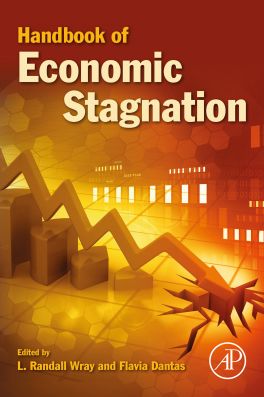Description
Handbook of Economic Stagnation takes a broad view, including contributions from orthodox and heterodox economists who examine situations in countries and worldwide regions, including Japan and the Euro area. To be sure, stagnation is periodically relieved by short economic bursts usually brought on by unsustainable asset price bubbles. Once the bubbles burst, stagnation returns. This book's fresh, comprehensive approach to the topic makes it the premier source for anyone affected by these cycles.
- Synthesizes and organizes diverse perspectives about crisis economics and future economic growth
- Emphasizes the relationships among stagnation, international economics, and the global distribution of labor
- Includes Japan and the Euro zone as well as other countries and regions worldwide

